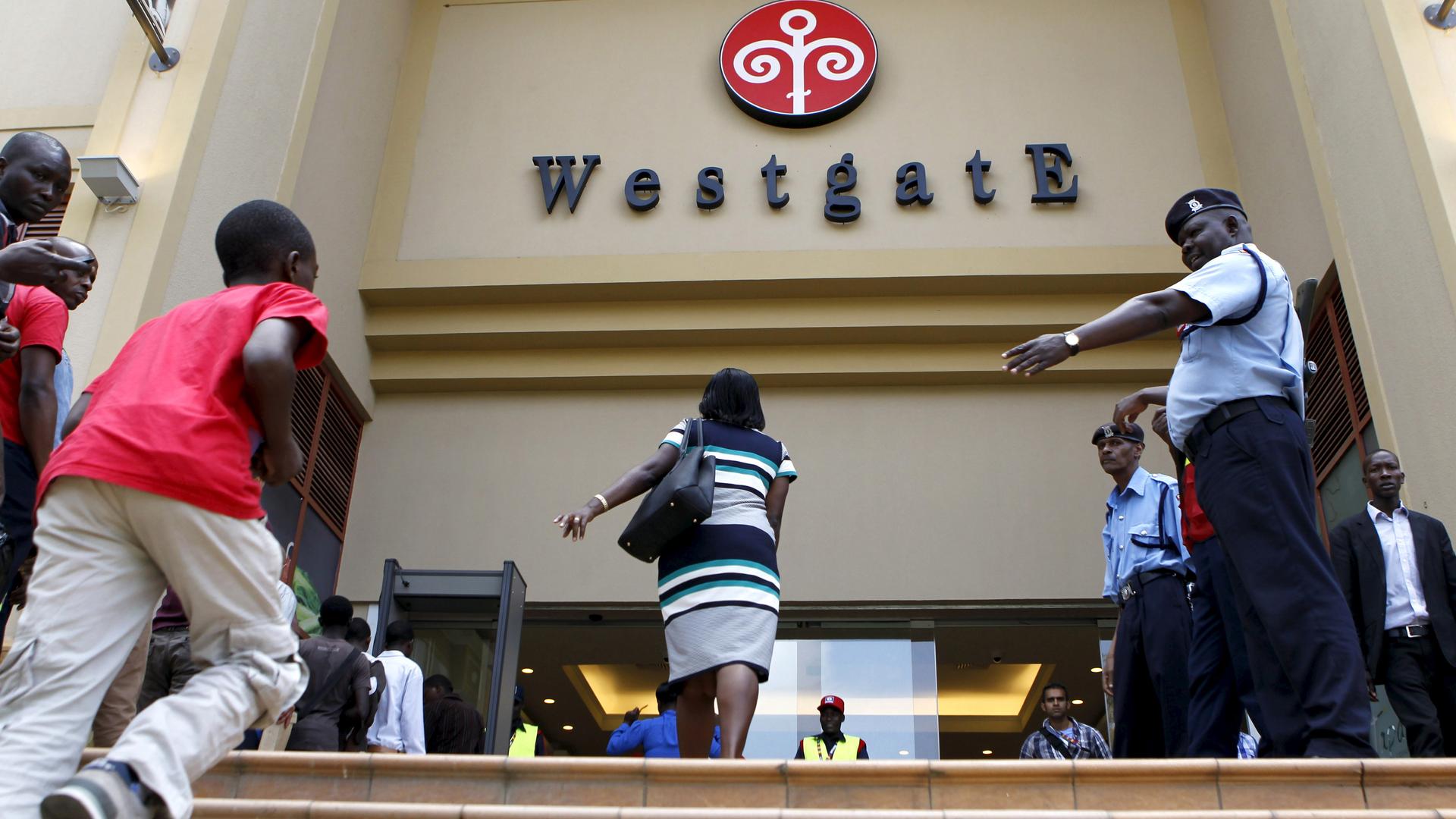Although Westgate mall has re-opened in Nairobi, the terrorist threat in Kenya may be getting more unpredictable
Customers enter the re-opened Westgate shopping mall, in Kenya's capital Nairobi, July 18, 2015. Kenya's Westgate shopping mall reopened for the first time since Al-Shabaab gunmen stormed the mall killing at least 67 people in September 2013.
The Westgate mall on Monday feels really normal in some ways. And really abnormal in others.
Normal in that it’s a mall on the equator at Christmas. It’s 75 degrees Fahrenheit outside; people stroll around in short sleeves; fake pine wreaths and trees are no competition for the smell of perfume samples wafting through the air.
But here’s the abnormal: as you look around, you wonder if security guards outnumber shoppers. The number of entrances is really limited and tight: you put your bags through a scanner before entering. It's all the legacy of September 21, 2013, when armed gunmen stormed the mall and held people here under siege for three days. The attack left 67 dead and hundreds wounded.
“I feel safe; I don’t think there’s anything to fear coming back to this mall,” one shopper tells me as the sound of an interior waterfall — just like any mall around the globe — burbles in the background.
“They have a saying here that ‘the ball never breaks in the same place twice,’” a male shopper says. “Let’s hope that’s the case for Westgate.”
That of course is the worry for authorities in Kenya, who have not only Westgate but any number of other “soft targets” to protect. And changes within the group that attacked the mall, Al-Shabaab in Somalia, make the future all the more worrying here.
(We went back to some of the locations in the Westgate Mall where the attack took place and photographed the same locations as they are today. Move the slider bar left/right to compare photos from 2013 and 2015.)
(Credit: (2013) Nichole Sobecki/AFP/Getty Images; (2015) Immanuel Muasya; Slider: Kuang Keng Kuek Ser)
Stig Jarle Hansen, a well-known expert on Al-Shabaab, has written about the terrorist group's origins, similar al-Qaeda’s, in the late Cold War conflict between the US and USSR over Afghanistan. Traditionally, Al Shabaab’s rhetoric and structures have taken major cues from al-Qaeda.
But recently, a few Al-Shabaab commanders have been defecting to pledge their allegiance to ISIS, as some Boko Haram leaders did in March. That prompted a furious denunciations from Al-Shabaab’s leadership, and their threats against defectors may not be enough to fight the lure of ISIS.
“ISIS are seen as doing something, something is happening,” Hansen recently told Newsweek. “They control territories, they are part of a larger narrative [about] the of end times, they are part of the re-emergence of the caliphate. ISIS hit internationally, [whereas] al-Qaeda does not hit that much internationally anymore.”
Al-Shabaab has done plenty of damage beyond Westgate: In April, armed gunmen massacred 147 at Garissa University in northern Kenya. The idea that the terrorist group could become even more focused on soft targets, in the style of ISIS, is a nightmare that’s all too real for Kenyan authorities now.
